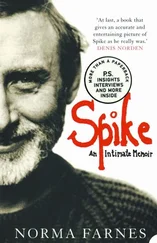On another occasion, I was waiting in the Secret Service office when she called for me.
“Mr. Hill?” she said. “Will you please join me outside by the pool? I need to talk to you.”
It was a beautiful afternoon and the sun felt warm on my face, as I walked across the lawn past the back of the house, toward the rectangular swimming pool. Two of my colleagues on the president-elect detail were standing post at the corners of the property bordering the beach, and I gave them each a quick wave. In Palm Beach the Secret Service agents shed our standard uniform of a dark suit and shined dress shoes for more casual clothing, with the intent of melding into the local populace to appear as inconspicuous as possible. The two agents in their cotton-knit shirts and cotton trousers looked like they could have just walked off the golf course. In the distance, a Coast Guard boat patrolled the waters along the coast.
Next to the swimming pool, Mrs. Kennedy was sitting on a chaise lounge, in a revealing bathing suit, with a stack of books by her side and a yellow legal pad in her lap. Caroline played and splashed in the pool while one of the agents who had been assigned to her protection stood watch nearby, ready to render assistance if needed.
“Yes, Mrs. Kennedy?” I asked as I approached her.
She looked up at me, her eyes hidden by a pair of large round sunglasses, and said, “Come sit down, Mr. Hill,” as she gestured to the lounge chair beside her.
Dressed in my normal attire for working in Palm Beach—a pair of khaki slacks and a short-sleeved shirt worn outside my waistband to conceal the .38-caliber handgun strapped to my hip—I felt somewhat awkward sitting next to her in her bathing suit, but sat down as instructed.
After seeing how the Secret Service operated with her husband, Mrs. Kennedy was concerned about what their family life would be like in the White House.
“I’m worried, Mr. Hill,” she said, as her brow furrowed slightly, “about losing all semblance of privacy.”
She turned toward the two agents posted at the beach. “Are these Secret Service men and other agents going to be around us constantly? Even in the White House?”
Although she was used to having maids and cooks in the house, I could tell that having the Secret Service around all the time was troubling her, so I attempted to explain our role and tried to put her at ease.
“The second floor of the executive mansion is considered off-limits pretty much for all employees, including the Secret Service. This is the private area for use as a home by the first family, and you may restrict access to whomever you desire. The Secret Service agents will only come up there if called, or if there is an emergency. And the household staff is very professional—most of them have been around for years and are able to do their jobs unobstrusively.”
“Well, that is good to know,” she said, as her facial expression relaxed. “I’m just so worried about Caroline and John growing up in such a restricted environment. I want them to have as normal a childhood as possible.”
As she said this, I thought to myself, after January 20, Caroline and John will forever be the children of the president of the United States. They will be saddled with that title for the rest of their lives. A “normal” childhood will be impossible.
“The goal of the Secret Service is to allow you and your family to do the things you want to do, while maintaining your safety and security at all times,” I said aloud. “The key is communication. If you can give us as much advance notice as possible about your plans, then we can make the appropriate arrangements. And if there’s ever anything that bothers you, just let us know.”
My answer seemed to appease her fears about privacy, so she moved to the next item on her legal pad.
“It seems that I am not receiving my mail in a timely manner. What is happening with our mail?” she asked.
“As a matter of security, all incoming mail to this address is redirected back to the White House mailroom from the Palm Beach Post Office for sorting, examination, inspection, and distribution. Unfortunately, this process causes a delay.”
She tilted her head and looked at me quizzically. “All the mail has to be inspected?”
I didn’t want to scare her, but I thought she should know exactly why we took this precaution.
“We need to ensure that there is no hidden explosive material or poisons prior to delivering letters and packages to you and the president-elect. And, of course, we screen for any mail that is threatening in nature.”
What I didn’t tell her was that we also weeded out the “hate” mail, of which there was plenty. The fact that President-elect Kennedy would be the first Catholic president did not sit well with many Americans. There was a fear that, as president, Kennedy’s decisions would be based on his religion and dictated by the pope. Additionally, Kennedy’s support for civil rights was unpopular in many parts of the country, and the violent nature of his opponents was of great concern to the Secret Service. Nothing was left to chance.
“But what about personal letters from my friends and family?” she asked. “Obviously those letters are safe, and it’s important that I receive them in a timely manner.”
We discussed a few options but none of them made me feel completely comfortable. Finally, I came up with an idea that I thought might work.
“How about if you have your friends and family put my name, ‘Clint Hill,’ along with your name as the addressee? This way, you can control who has this special access, and the post office can easily separate those letters and packages.”
She seemed delighted with this idea. “It will be so clandestine. My friends will find it amusing, so secretive!”
Rather than the postal workers and me having to learn the names of all her friends, I thought this would be the easiest and quickest way to solve the problem. It also meant that every morning, my first stop of the day was the Palm Beach Post Office to go over incoming mail for the Kennedys and pick out those with my name on them. I would then hand carry them to Mrs. Kennedy. It became a regular routine and worked very well. I soon learned that Mrs. Kennedy had a large number of family and friends—I had never received so much mail in my life.
Meanwhile, some threatening letters had been intercepted by the Secret Service in Washington, which had everybody on high alert.
The first Sunday after our arrival in Palm Beach, the president-elect had decided to attend Mass at St. Edward Church, a Catholic parish in Palm Beach. Mrs. Kennedy was still recuperating, and while she didn’t plan to join her husband, she and Caroline walked with him to the front gate of the estate, where some well-wishers had gathered outside, hoping to catch a glimpse of the family. Mrs. Kennedy waved to the onlookers before retreating into the privacy of the grounds, as Secret Service agents escorted the president-elect to the church, just a short drive away.
Four days later, a seventy-three-year-old man named Richard Pavlick was arrested by Palm Beach police following an intensive search based on letters Pavlick had written threatening to turn himself into a “human bomb” to kill President-elect Kennedy. Pavlick believed Kennedy’s father had bought the election and Pavlick thought he’d be seen as a hero for killing John F. Kennedy before he was inaugurated. Police found dynamite, detonating caps, and battery wiring in Pavlick’s car and at his West Palm Beach motel room. The mentally unstable man stated he had planned to set off the bomb outside the Kennedy residence as the president-elect was leaving for church the previous Sunday. He had parked his car on a nearby side street with the intention of ramming it into Kennedy’s car, but the sight of Mrs. Kennedy with young Caroline made him reconsider his plan. He had no intention of harming the president-elect’s family, so he decided to wait for another opportunity when Kennedy was alone.
Читать дальше











